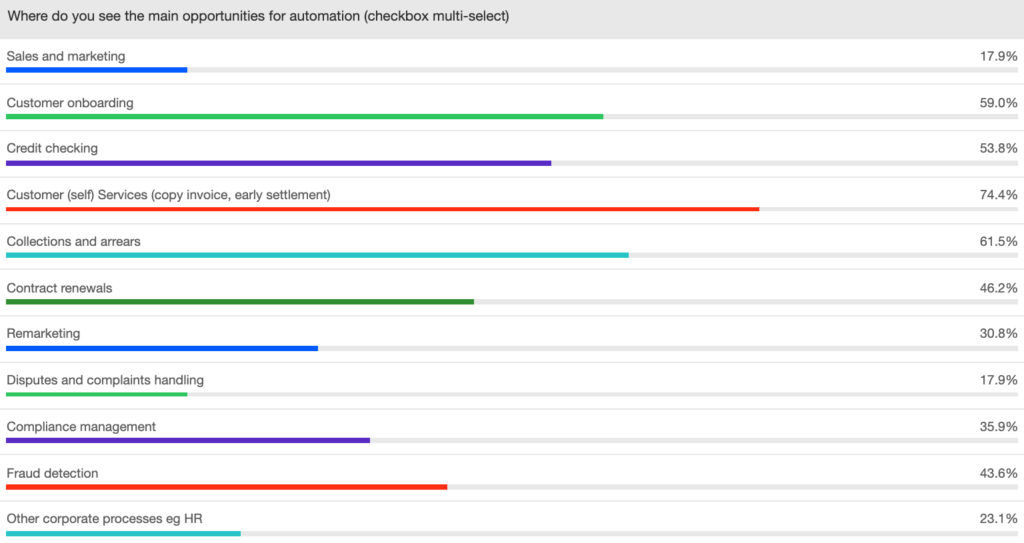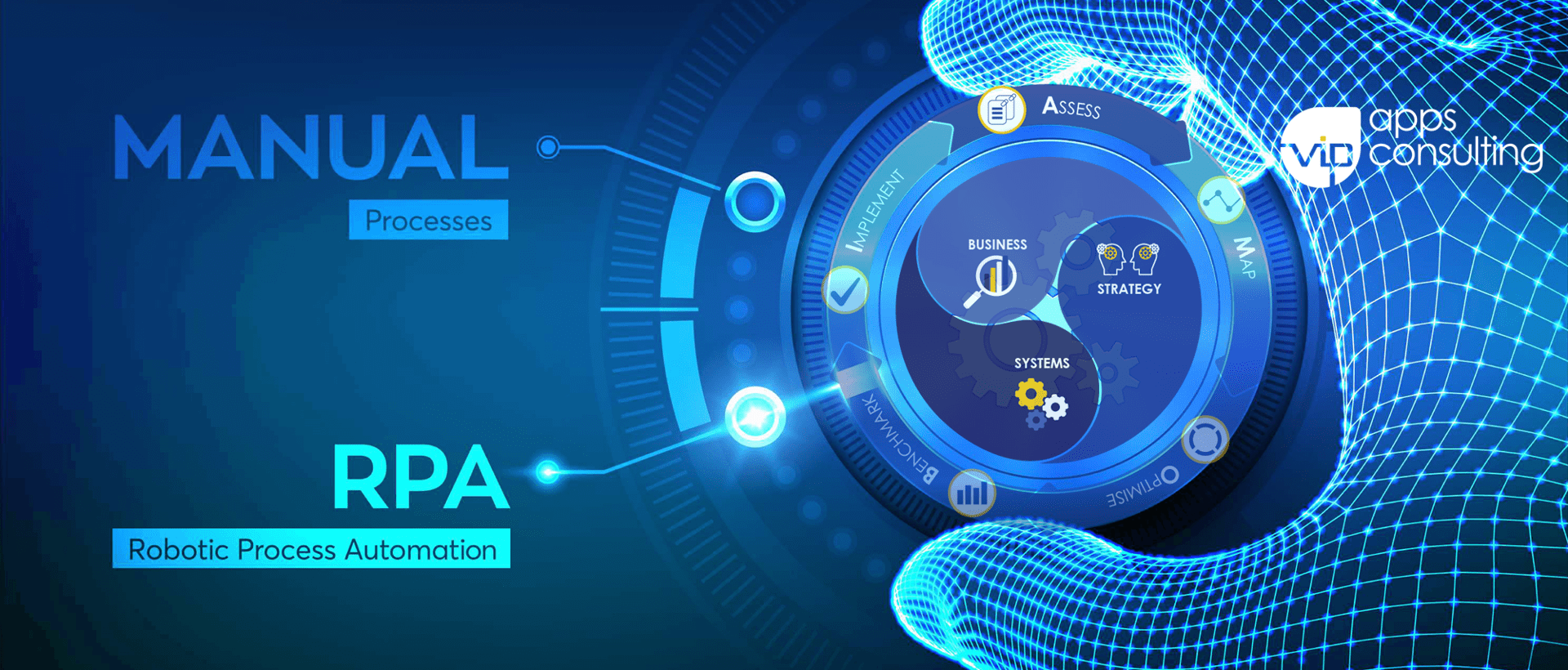The recent IAFN webcast on Robotic Process Automation (RPA) in Equipment and Auto Finance that VIP Apps sponsored highlighted how businesses can approach intelligent automation for their business processes in an efficient and holistic way. The panel included representatives of businesses who are already well along their RPA journey, or are just beginning the process (Adam Goodacre of VWFS and Gavin Dowding of Propel), RPA software providers (Rory Gray of UI Path) and VIP Apps Managing Director Daypesh Patel to provide a broad insight into how businesses can prepare for and use RPA, alongside a proper assessment of the problem using our AMOBI methodology.
RPA, at its most simplistic, is a software platform that can use computer vision to identify data on a screen or document and then leverage an automated workflow or process to complete a task in another system, using artificial intelligence to manage the process and make decisions. Essentially interacting with the system in the same way a human would, but with potential advantages in speed and accuracy. What we would refer to as intelligent automation. Use cases can include intelligent document processing (registration of received invoices or purchase orders), customer interactions (self-service for documents or registration of complaints) or even fully automated claims handling (where artificial intelligence can evaluate damage based on a photo).
The session covered a range of topics, but the key takeaways around how businesses can prepare for intelligent automation focused on the following points:
1. Start small – identify robust, simple use cases for process automation. These should be rules based and repetitive processes. Use this initial project to flesh any potential governance issues with automation.
2. Engage the users as well as the senior management – use simple processes with quick returns to build user buy in for future more complex change. Showing that it can work will open minds to the possibilities.
3. Separate process and people decisions – decide if the process should be automated first as a joint IT and business function decision, then leave the business function to consider how best to use any process efficiencies. This can help mitigate the fear that automation is a job remover.
4. Identify the problem, not the solution – don’t automate for automation’s sake, identify what your problem is and why it exists before deciding on the right solution, which may not always be technology based.
5. Don’t limit your assessment to front office or back office processes. Look at external customer experience and at internal bottlenecks between functions where intelligent automation for documentation, communication and workflow management could be a quick win.
6. RPA can be a powerful tool as part of a two speed IT strategy, where longer term system and business changes can be supported by quick RPA implementations to bridge gaps.
Polling of attendees showed that the majority were at the early stages of their RPA assessment journey, and that the main candidates for automation were customer onboarding and credit checking, customer self-service, collections management and compliance management. These are all areas where their volume, repetition and rules-based assessments lend themselves to intelligent automation.

However, beginning the journey with proper assessment of processes is the key to success for any business or technology project. VIP Apps AMOBI methodology can help to view your business holistically and identify areas for optimisation by intelligent automation.

Robotic process automation technology, particularly in conjunction with computer vision and machine learning is enabling more and more complex processes to be intelligently automated, freeing up human capital in the business to focus on areas where the human touch is needed. If the words Robotic Process Automation just conjure images of inefficient screen-scraping and excel macros, perhaps it is time to re-assess the potential of RPA and how it can help empower your staff and improve the customer experience.

The session is now available on demand: https://bit.ly/30qrLHn/
Get in touch with us today and begin your automation journey.
About VIP Apps Consulting
VIP Apps Consulting provide business process management and technology consulting services. We operate in the intersection of technology and business, combining deep business and industry insight with the understanding of how technology and innovation impact the industry and business model. Our unique process-driven approach and AMOBI and DELIVER proprietary methodologies deliver greater value and efficient business outcomes, minimising cost and risk. Our team has extensive experience within the Equipment Leasing and Vehicle Asset Finance industry with the knowledge, capabilities and operational expertise, to help organisations assess and implement change.










